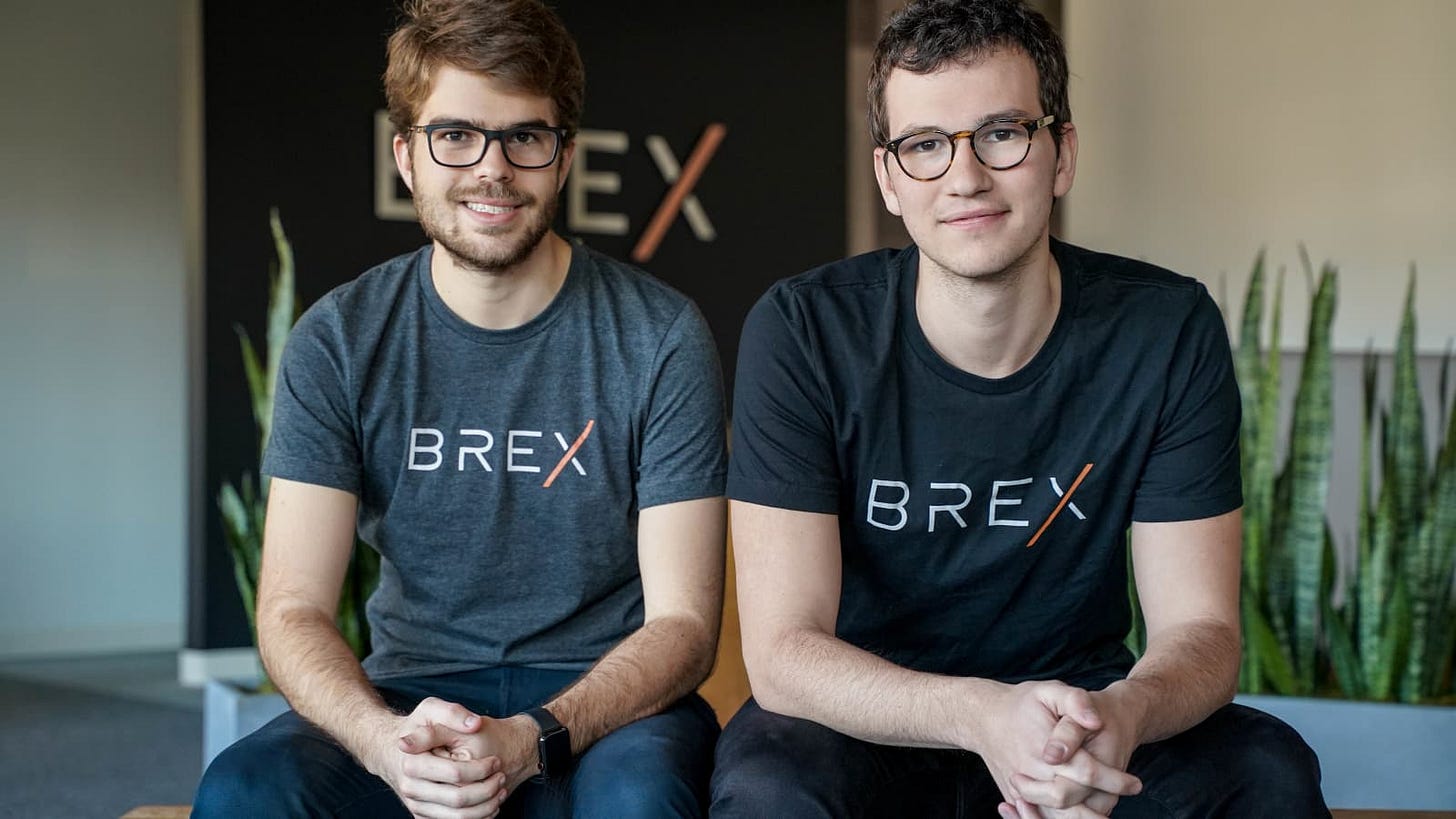This article is part of Fintech Leaders, a newsletter with almost 60,000 dreamers, entrepreneurs, investors, and students of financial services. I invite you to share and sign up! And, if you enjoy this conversation, please consider leaving a review on Apple Podcasts, Spotify, or wherever you get your shows so more people can learn from it.
Want to sponsor fintech leaders? Contact us at fintechleaders@substack.com
I sat down with Michael Tannenbaum, COO (and employee #1) at Brex, a $12 billion global platform for finance teams and founders to manage every aspect of global spend.
Launched in 2017 Brex was last valued at $12B in January 2022 and has raised over a billion dollars from YC, Ribbit, Human Capital, GFC, DST, Dragoneer, TCV, and a very long list of fintech investors.
In this episode, we discuss:
Implications of a high-interest rate environment for tech and fintech
“FinTech is broadly disrupting different business models across the financial services spectrum, and some of those businesses benefit from higher rates.”
The effects of higher interest rates have been generally negative for tech due to reduced attractiveness of a risky asset class, as higher interest rates present more conservative investment opportunities. However, for FinTech, the implications are more nuanced. Some business models within FinTech benefit from higher rates, especially those involving deposits and certain types of insurance. These models perform better in a higher rate environment, offering more opportunities for fintechs that operate or disrupt these sectors. In the past, there was a lack of scaling in businesses focused on deposits or insurance due to an abundance of excess deposits, making it challenging to profit. However, with rising interest rates, there's a trend where more companies are focusing on helping consumers and businesses navigate this higher rate environment, indicating an increased opportunity and activity in these areas compared to a decade ago.
Michael’s time at SoFi and what he learned about promoting talent from within
“It's harder when you put yourself on the line to train someone internally and say ‘I know this person can do it, even though they haven't done before.’ … But I really believe in the long run, you're gonna engender more loyalty, more hard work. More fun, you're gonna have a lot more fun if you do that.”
Tannenbaum had a transformative experience at SoFi, being promoted six times, which instilled in him a deep appreciation for internal promotions. Drawing from his own experience, Michael believes in giving others similar opportunities to grow within an organization. He feels that fostering internal talent not only "pays it forward" but also cultivates loyalty, dedication, and can be more fun, which contributes to a more enjoyable and fulfilling work environment. He recognizes the commitment and risk managers take on when promoting internally, since choosing to mentor and uplift an internal candidate over hiring externally requires faith in that person's potential. Managers not only invest time in training and teaching but also stake their reputation on the belief that their team member will rise to the challenge, even if they haven't performed that specific role before.
Reflections from the early days at Brex and what he describes as his favorite role at the company
"Henrique and Pedro, they were younger than me, but they had already started and sold the business. So it was kind of like, Yeah, but I guess while I was in high school and college, which, you know, I thought was what you do at that age, they were you know, starting a payments business."
Transitioning from banking / private equity to startups reshaped Michael’s perspective on the value of each additional year spent in finance-oriented roles. He noticed that after a certain number of years, you run into diminishing returns, especially when it comes to one's ability to operate in the startup environment. Long stints in financial domains might not exponentially increase one's value in startups.
When Michael joined Brex, he found that Although Brex's co-founders, Henrique and Pedro, were younger than him, they had already founded and sold a business. While Tannenbaum was sitting in high-school and college, the co-founders were gaining valuable experience in starting a payments business. He respected and deferred to their expertise in company building and technology, acknowledging their unique experiences despite their age.
The future of Brex, bidding for SVB’s credit card portfolio… and a lot more!
“When SVB collapsed, unfortunately, we were looking at the card portfolio. We didn't bid on the entire business, just because banking represents a huge set of regulatory overhang that we probably aren't prepared to enter at this moment, but we were definitely interested in taking over those card customers.”
Want more podcast episodes? Join me and follow Fintech Leaders today on Apple, Spotify, or your favorite podcast app for weekly conversations with today’s global leaders that will dominate the 21st century in fintech, business, and beyond.
Previous Episodes You May Enjoy:
Video Highlights You Will Definitely Like:
Miguel Armaza is Co-Founder & Managing General Partner of Gilgamesh Ventures, a seed-stage investment fund focused on fintech in the Americas. He also hosts and writes the Fintech Leaders podcast and newsletter.



























Share this post